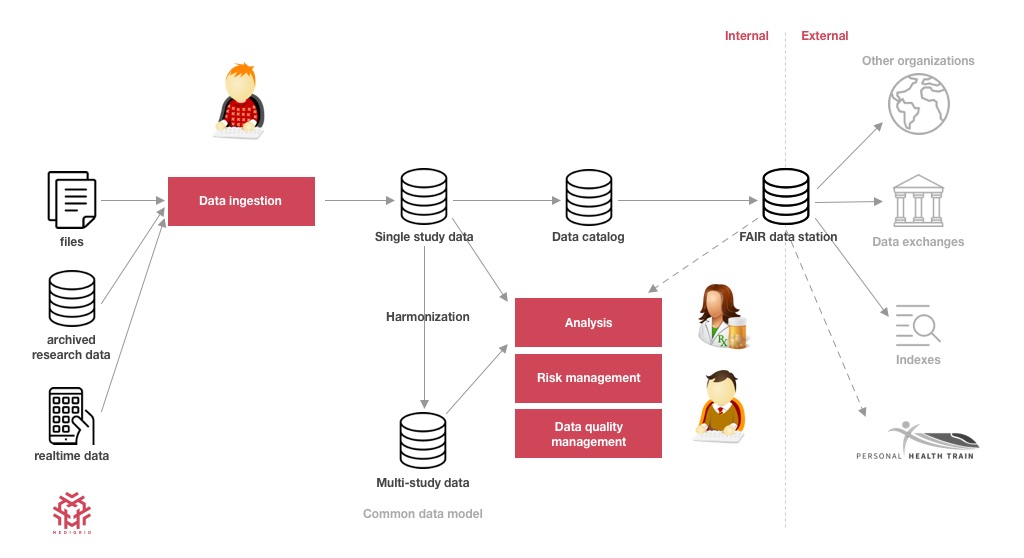Solution outline
MediGrid platform
Solution outline

Short explanation:
- MediGrid can import data in many structured formats like Excel, CSV, CDISC, SAS and many more. Both manually, automated or in realtime through APIs or scripts.
- Data is structured, curated and enriched with metadata. The data catalog contains an overview of all available studies and datasets.
- Optionally data is harmonized to allow multi-study reporting or analysis.
- Researchers can decide if data becomes available in a FAIR data catalog or FAIR data station. This allows for data collaboration, access from 3rd party indexes or applications such as the personal health train.
MediGrid is a software-as-a-service solution. It can store data in a chosen geographical region and fully comply with national and international laws.
What can users do with MediGrid?
- Clinical data managers can import datasets, curate data and monitor the quality of all data and metadata. For example by using the data catalog or curation functions.
- Researchers can browse datasets, perform basic analyses in MediGrid or use structured data exports or data pipelines to 3rd party tools such as R, SPSS or SAS.
- Auditors, researchers and data managers can create and monitor risks reports or conduct compliance checks.
Features
Security
- ISO 27001 certified
- Authentication
- Access management
- Audit trail
- Encryption
- Anonymization
- Remove personal data (right to be forgotten)
Ingestion
- Read Excel, CDISC SDTM/ADAM, SAS files
- Setup schemas and data structures from Excel template
- Data quality checks
- Data curation
Data
- Data catalog
- Data dictionary
- Support for LOINC, SNOMED and Athena
- OHDSI OMOP common data model
The best way to learn more
There is lots more to tell en learn. The best way to learn more about MediGrid is by experiencing a demo. In only 30 minutes you’ll learn more about the solution, see the interface and several of the analysis options.

